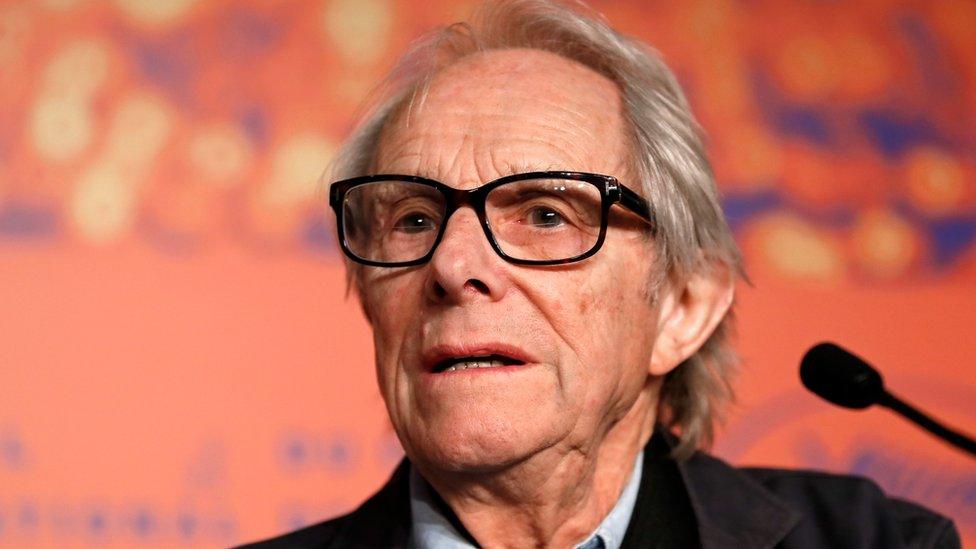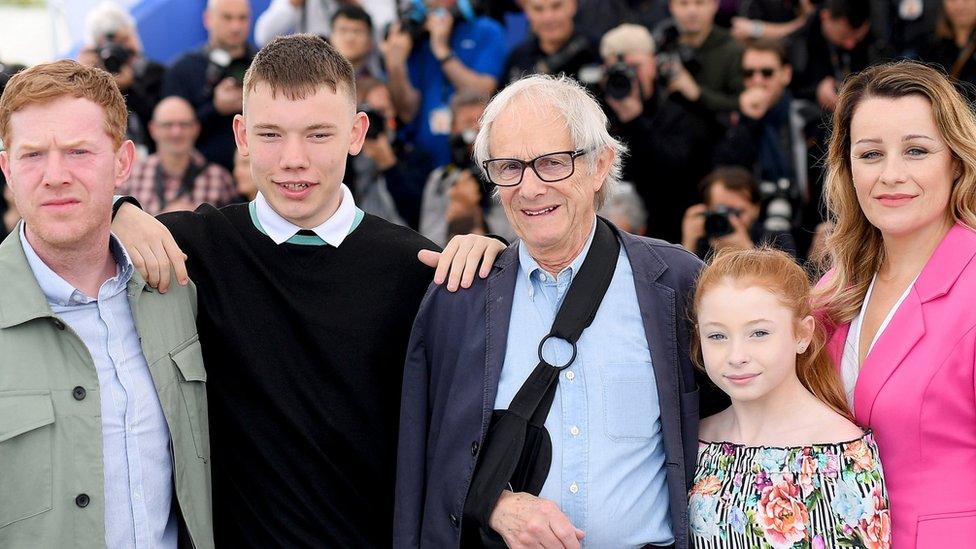Cannes 2019: Ken Loach says zero-hour contracts can 'kill' people
- Published

Veteran Cannes director Ken Loach has warned zero-hour contracts can "kill" and has accused companies of being able to turn working class people "on and off like a tap."
The director was speaking following a screening of his heart-rending film, Sorry We Missed You, which premiered at the film festival on Thursday night.
It follows a Mancunian delivery driver struggling to support his family.
"There is no way out, the system has trapped him," said the 82-year-old.
As debts pile up, zero-hour contract driver Ricky - played by Kris Hitchen - and his contract nurse wife, Abbie - portrayed by Debbie Honeywood - battle to stop their Newcastle-based family from falling apart.
Loach, who won the Palme d'Or in 2006 for The Wind That Shakes the Barley and again, ten years later, for I Daniel Blake, believes their situation is representative of many other modern UK families.
"He [Ricky] is imprisoned," stated Loach, with his right arm in a sling.
"There is no escape, he's in debt, he will be further in debt if he doesn't go to work.
"We met people who went to work with broken limbs and there was one appalling case were a man didn't keep his hospital appointment for diabetes because he had to work, then his diabetes got worse, he missed more appointments, then he died.

Ken Loach and (l-r) Sorry We Missed You stars Kris Hitchen, Rhys Stone, Katie Proctor and Debbie Honeywood
"It was directly traced to his inability to stop work because of debt and financial problems.
"This system kills."
He added: "The working class is weak and can be turned on and off like a tap and that's built into the system."
'Security to insecurity'
The auteur, whose work often tackles themes like inequality, poverty and the welfare system, blamed what he described as "fake left" politicians for the rise of the gig economy.
He said the workplace had changed drastically since he was starting out, noting that back then tradespeople could have a job for life and support their families on a living wage.
"The inexorable change from that security to insecurity," he went on, "Where people can be hired and fired at a day's notice, where people are on contracts, where the employer makes no commitment to how much work they will get or how much they will earn.
"Working through agencies or as Chris is in the film being so called 'self-employed' where the worker takes all the risk and the employer is in the fortunate position - he takes no risk and the worker has to exploit himself or herself.
"So it's the perfect situation for the big companies, the worker has to work himself into the ground."
Loach said such working conditions "determine the choices families have and determine their relationships."
Finally, when asked about the proposition of giving unemployed people a guaranteed wage, as was introduced recently in Finland, Loach said the idea "interesting" but that it was "a sticking plaster" rather than a proper solution.
- Published17 May 2019

- Published16 May 2019

- Published8 February 2019
